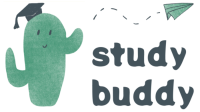With a mix of innovation and centuries-old traditions, South Korea provides quality education, and the capital Seoul is ranked among the top 10 cities for students in the world.
Investments in quality education and research are at the forefront of the development of South Korea, the 13th largest economy in the world and the third largest economy in Asia.
Education in South Korea is a complex and multi-layered model that emphasizes the importance of education in society. Despite its advantages and challenges, this systematic approach to learning is one of the reasons for the country's success and its high educational reputation.
It currently has more than 370 universities, as well as Global Campuses opened by international universities, as this is part of South Korea's internationalization plan.
Why choose to study in South Korea?
Higher education in South Korea plays a key role in the formation of professionals who contribute to the country's economic and cultural progress.
- Higher education system: South Korea has a rich and diverse higher education system that includes universities, colleges and technical institutes. The most popular are universities where students can choose between different disciplines and majors.
- Quality of education: South Korean universities are known for high quality of education and reputation worldwide. Universities such as Seoul University, Korea University and Posen University attract students from all over the world.
- Competition and admission: Admission to prestigious universities is extremely competitive. Students must score high on standardized tests such as the College Scholastic Ability Test (CSAT) and compete for a limited number of spots.
- Model of research and innovation: South Korea is at the forefront of research and innovation. Universities promote research and collaboration with industry. This contributes to scientific discoveries and technological progress.
- International students: South Korea strives to attract international students and often offers scholarships and exchange programs. This contribution of international students enriches the educational environment and cultural exchange.
- Specialized educational institutions: In addition to universities, South Korea also has specialized educational institutions such as business schools and artificial academies that provide training in specific fields.
Can I study in Korea without knowing Korean?
Yes, of course! While proficiency in Korean can be helpful, approximately 25% of courses at Korean universities are taught in English. This helped overcome the language barrier for international students and make South Korea a more desirable choice. However, it is recommended that you learn the basics of the Korean language as it will be helpful and can help you fully integrate into Korean society and culture.
Job opportunity
Students on D-2 and D-4 visas may work part-time as long as this is permitted by the institution. However, in most cases, you must stay in Korea for 6 months before you are allowed to work. After 6 months, you should ask your university for a letter allowing you to work part-time. For legal purposes, a student must obtain a license from immigration to be legally considered part-time.
Frequently asked questions
-
How to Apply Admission to prestigious universities in South Korea is extremely competitive. Students must score high on standardized tests such as the College Scholastic Ability Test (CSAT) and compete for a limited number of spots.
Application Deadlines The official academic year starts in March, but many universities enroll new students twice a year - in March and September. - Application deadlines for March are usually between September and November. - The application deadlines for September are between May and June.
The majority of South Korean universities have two terms, with a summer break from July to August and a winter break from December to February.
Health Insurance in South Korea Each university provides health insurance to international students. The health insurance fee varies by university.
Currency In South Korea, the currency is the South Korean won. The exchange rate is KRW 690.13 = 1 BGN.
-
Sample costs of living in South Korea are:
Cost Price One-room apartment for rent $800 – 850 Fast Food Combo $7 Bread $2.3 Milk 1l in a supermarket $2.2 Package of eggs 12 pcs. in a supermarket $2.8 Monthly public transport card $45 -
To study in South Korea, you will need to obtain a visa before entering the country. Your university can help you with the visa process. You will usually need to provide the following: - Application form - Passport - Color photo (3.5 x 4.5 cm) - Copy of Korean University Business Registration Certificate - Letter of acceptance from Korean University - Proof of finances that cover living expenses for your semester in Korea
Types of visas: - D-2: Visa for a full-time educational program (bachelor's, master's or doctoral program). - D-4: Visa for general education (university-run language schools or qualified educational institutes).
A Korean student visa can be valid for up to two years.
Contact with the Embassy of the Republic of Korea in Sofia: - Address: Sofia St. "Srebarna" No. 2B, 4th floor - Working hours: 09:00 – 12:30 / 13:30 – 17:30 - Tel.: +359 2 971 21 81, 971 25 36 - Fax: +359 2 971 33 88 - Email: [email protected] | [email protected] - Site: http://overseas.mofa.go.kr/bg-bg/index.do
Didn't find an answer to your question?

